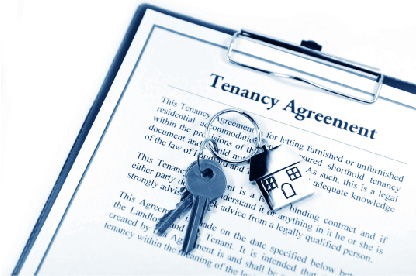By: Attorney Corey T. Pontes| Associate

When entering into a residential lease agreement with a landlord, it is important that a tenant knows their rights. While a majority of landlords are responsive to the needs of their tenants, there are times when a landlord may not fulfill his or her legal duties under Massachusetts law.
Types of Tenancies
Tenancy for Years
The tenancy for years is the most common type of landlord/tenant agreement in Massachusetts. A tenancy for years continues for a fixed period of time and ends at the expiration of the period. Even though it is called a tenancy for years, it does not necessarily have to be for a year or more. For example, if a tenant signs an agreement for 6 months, the term would end at the end of the six month period.
Tenancy at Will
A tenancy at will can be terminated at the will of either the landlord or the tenant. If the tenant pays rent in increments of less than three months and either the landlord or tenant wants to end the tenancy, they must give notice equal to the intervals of rent payment or 30 days, whichever is greater.
Periodic Tenancy
A periodic tenancy is a tenancy that continues for successive periods (e.g. month to month, year to year) until terminated by either party with proper notice. Proper notice is one full period in advance. If you have a month-to-month lease, you must notify your landlord (and vice versa) one month before you plan to vacate the premises. However, if you have a year-to-year lease, you need only give your landlord six months’ notice before you plan to vacate the premises.
Landlord Duties
Common Areas
A landlord owes his tenants and his tenant’s guests a duty to exercise reasonable care in the maintenance of common areas. If you live in an apartment building, this would include areas like a stairwell, hallway or lobby. If there is a defect in a common area, you are required by law to give notice to your landlord. If the landlord does not repair the defect within a reasonable time, you have the right to bring a tort case against the landlord for any injury you may have suffered.
Keep in mind that your landlord cannot indemnify themselves from negligence in leased areas. If there is an indemnity provision in your lease agreement, it is invalid per Massachusetts Law.
Constructive Eviction
A constructive eviction occurs when the conditions of the property have become unlivable due to deliberate and wrongful acts of a landlord. If a tenant can prove a constructive eviction, this is a defense to refusing to pay rent. Examples of a constructive eviction include shutting off utilities such as electricity or heat, refusing to clean up an environmental hazard and refusing to fix a serious leak in the roof.
Another type of constructive eviction occurs when there is a breach of the covenant of quiet enjoyment. Whether written explicitly in the lease or not, a tenant has the right to quiet enjoyment on their property.
A tenant who is claiming constructive eviction must serve the landlord with notice and allow a reasonable time for remedy. Also, the tenant must leave the premises in order to claim constructive eviction. The tenant does not have to pay rent during the constructive eviction and the landlord may even have to pay reasonable expenses for the tenant’s new living arrangement.
When a Landlord Can Enter your Apartment
A landlord can always enter your rented premises with your consent or if there is an emergency, such as a gas leak. However, beyond these two scenarios a landlord must give a tenant notice before entering the premises. 24 hours at the least is generally what is needed for notice before entering a tenant’s apartment.
When entering into a lease agreement with a landlord, it is important to know what rights you have. This ensures a smooth tenancy for the tenant and landlord both.
If you are a tenant or a landlord and have any questions or would like assistance, please call the attorneys at Wynn & Wynn, P.C. at 1.800.852.5211 or request a free consultation.











